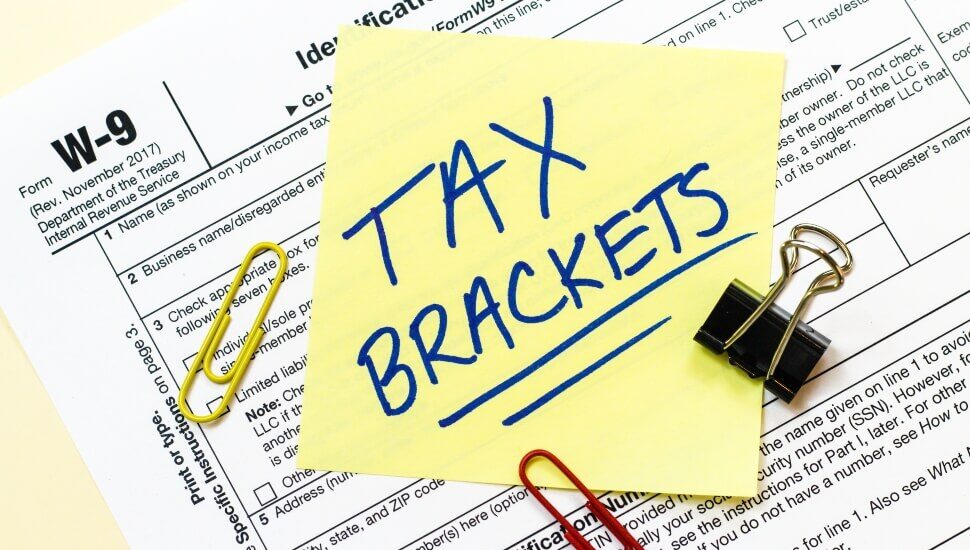IRS Has Made Changes to Its Tax Brackets, Here Is What That Means for You


Thanks to inflation adjustments made by the Internal Revenue Service, many Americans will see their tax brackets shift and their tax burden go down next year, writes Ashlea Ebeling for The Wall Street Journal.
Still, some will benefit more than others.
The IRS adjusts dozens of tax provisions based on inflation each year. These include the standard deduction and income tax brackets, which are based on formulas determined by federal law. Recent record inflation led to major modifications for next year.
The goal of inflation adjustments is to help offset the effects of rising prices. Those who get raises next year due to inflation might find themselves paying more taxes due to higher thresholds.
However, while they could end up paying more in dollar terms, they will probably be paying less as an overall percentage of their income.
“This isn’t really a gift to taxpayers. It’s more like keeping us in the same boat,” said Morris Armstrong, a tax adviser, and enrolled agent.
In 2023, the standard deduction and the income thresholds where tax rates take effect will rise about 7 percent for tax returns to be filed in early 2024. This is a significant boost to $13,850 from $12,950 this year for single filers, for example.
According to IRS, in 2019, close to nine in 10 taxpayers took the standard deduction, which shields some income from taxes, instead of itemizing deductions.
Fred Hubler, CEO of Creative Capital Wealth Management Group based out of the historic West Pikeland High School says, “As a firm that specializes in alternative investments, a big part of our practice is utilizing strategies that can give investors a reduction of their earned income tax or to defer capital gains.”
“These new brackets,” continued Hubler, “will increase the need for these strategies if someone is a high-income earner or has significant capital gains they want to mitigate.”
The inflation adjustments also apply to tax deductions for workplace benefits, including 401(k) retirement accounts, healthcare flexible spending accounts, and commuter accounts. Taxpayers can further lower their tax bills by maxing out these accounts.
New inflation-adjusted tax brackets for 2023 for single filers:
- 10% Up to $11,000
- 12% $11,001 – $44,725
- 22% $44,726 – $95,375
- 24% $95,376 – $182,100
- 32% $182,101 – $231,250
- 35% $231,251 – $578,125
- 37% $578,126+
New inflation-adjusted tax brackets for 2023 for married filers who file jointly:
- 10% Up to $22,000
- 12% $22,001 – $89,450
- 22% $89,451 – $190,750
- 24% $190,751 – $364,200
- 32% $364,201 – $462,500
- 35% $462,501 – $693,750
- 37% $693,751+
Read more about IRS’s inflation adjustments in The Wall Street Journal.
______
Open House on Wednesday: Creative Capital Wealth Management Group – RSVP Today
The first quarter of a new year offers an opportunity to evaluate how world events, politics, and trends might influence and shape economic developments across the Philadelphia region and the United States.
With inflation here to stay and whispers of a global recession looming, now is the time to arm yourself with the information you need to ensure a successful 2023 for you and your business.
At 4:00 PM this Wednesday (March 22, 2023), Fred Hubler, founder, and Chief Wealth Strategist at Creative Capital Wealth Management Group, and Greg Care, a partner in the Limerick office of Maillie LLP, will share their perspective on global, national, state, and local economic trends and answer your questions about how IRS changes made in 2022 might impact your tax return in 2023.
Attendance is limited to 25 readers of the weekly Wiser Wealth column of DELCO Today.
Reserve a ticket on EventBrite today
Join Our Community
Never miss a Delaware County story!
"*" indicates required fields





















![95000-1023_ACJ_BannerAd[1]](https://delco.today/wp-content/uploads/sites/3/2023/03/95000-1023_ACJ_BannerAd1.jpg)







